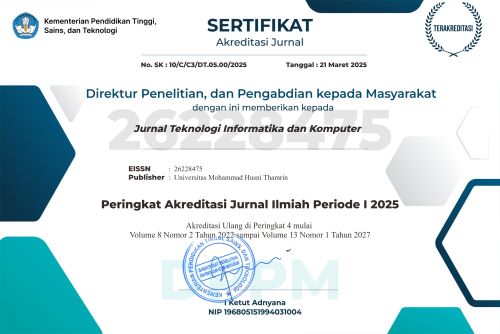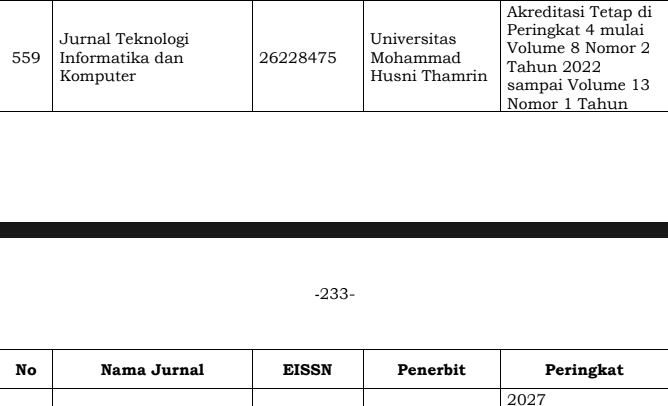Besemah Language Translation Machine Model Based on Machine Learning with Recurrent Neural Network (RNN) Model Algorithm
DOI:
https://doi.org/10.37012/jtik.v11i1.2614Abstract
Indonesia consists of various tribes with their respective regional languages, one of which is the Besemah tribe in South Sumatra Province with its language culture, namely the Besemah Language. Until now, the Besemah Language is still used by the Besemah tribe, but over time the number of Besemah Language speakers has decreased, plus most of the wider community does not know what the Besemah Language is. Machine Learning is a part of artificial intelligence that is often used to solve various problems. Machine Learning involves the use of computers and mathematical algorithms that use data to make predictions in the future. Machine translation is a tool that can convert one language to another. This study aims to collect datasets in the form of sentences and words from the Besemah Language, then create a Besemah Language translation machine to Indonesian and vice versa. In the research conducted, the approach used is Experimental Research in Machine Learning. Experimental research in machine learning for language translation is a research approach that involves designing and implementing a series of experiments to test and validate the performance of the language translation model. In this study, Neural Machine Translation (NMT) technology was applied with the Recurrent Neural Network (RNN) approach. The results of the study showed that the val_accuracy value for the Besemah-Indonesian translation was 0.8469 and for Indonesia-Besemah was 0.8492, in the translation trial conducted using the RNN model, 100 epochs, batch size 64, and validation split of 0.2.
Downloads
Published
Issue
Section
Citation Check
License
Copyright (c) 2025 Muhamad Andika, Yesi Novaria Kunang, Ilman Zuhri Yadi, Susan Dian Purnamasari

This work is licensed under a Creative Commons Attribution 4.0 International License.
Jurnal Teknologi Informatika dan Komputer allows readers to read, download, copy, distribute, print, search, or link to the full texts of its articles and allow readers to use them for any other lawful purpose. The journal allows the author(s) to hold the copyright without restrictions. Finally, the journal allows the author(s) to retain publishing rights without restrictions Authors are allowed to archive their submitted article in an open access repository Authors are allowed to archive the final published article in an open access repository with an acknowledgment of its initial publication in this journal.

Jurnal Teknlogi Informatika dan Komputer is licensed under a Creative Commons Attribution 4.0 International License.












